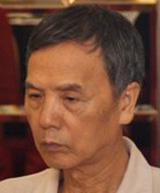On February 3, 2014, on the front page of a Chinese newspaper there was a banner headline announcing that the “flavor of military confrontation between China and the United States is getting deep.” It caught the attention of many observers of Sino-US relations and international affairs. Military confrontation would definitely be harmful to Sino-US relations, and should be avoided with great efforts from both China and the US. Why did such a headline appear in a Chinese newspaper? The answer may be difficult to find, but would certainly be helpful to the promotion of the smooth development of Sino-US relations. In addition to the continued US implementation of its strategy of rebalancing in Asia, and the strengthening of the US-Japan military alliance, a few significant events in recent months between China and the US have played a role and, in particular, the US mishandling of those events has reinforced the above perception in the Chinese media and the public. The essence is the fact that the US is not ready for China’s rise, nor does it respect China’s basic right to develop. The US should stop its empty statements of welcoming a strong, prosperous, successful China, and a China that plays greater role in international affairs. The US needs to put the slogan into practice.
Firstly, the US should respect China’s right to development. In January 2014, China conducted a test of the hypersonic glide vehicle (HGV) or WU-14, as the Pentagon calls it. This is absolutely a normal event in the development of China’s new and high-tech weaponry and military equipment as China has continued to achieve economic success. China pursues a national defense policy which is defensive in nature, and China has all along stood for no confrontation, nor conflict with the US. Mutual respect and cooperation for a win-win situation for both China and the US is the guiding principle for Sino-US relations.
However, senior U.S. military leaders and intelligence officials lost no time in making biased comments or even groundless accusations against China, saying that the hypersonic missile delivery vehicle, which is capable of penetrating US air defenses, is targeted at the US and is not helpful to peace. It is ridiculous to criticize and prevent other countries from testing new weapons or military equipment when tests conducted by the US have long been a daily routine and achieved supremacy in almost all new and high-tech military equipment. The US needs to give up its hegemonic way of thinking and its outdated notion of a zero-sum game, and should treat China and other countries as equals.
Secondly, if the US stops its reconnaissance of China at China’s door, it will serve as a fundamental solution to many differences in the security area between the two countries. Last December, when China’s new aircraft carrier Liaoning was conducting training in the South China Sea, the USS Cowpens encountered a Chinese naval ship in that area. The US immediately made it a big story. The US side issued protests to China in both diplomatic and military channels, stressing that the Cowpens was operating in international waters, and accusing Chinese vessels of lacking professional seamanship and so on. The two sides obviously have serious differences in terms of international law, international relations and established international practices,, as well as the right way to work together.
But it is very clear that the sustained US reconnaissance at China’s door, in defiance of China’s repeated opposition, is an unfriendly, if not antagonistic, operation, which is the main cause of such incidents or mishaps. Many international affairs scholars and analysts have asked how the American people would feel if China continued to send warships near Washington, DC or Los Angeles, conducting reconnaissance of the US. It shows that the US military does not have the support of the American people and remains one of the major obstacles in Sino-US relations.
Thirdly,the US should be more serious and responsible when commenting on important security issues that concern China. A few days ago, the Asahi Shimbun Daily of Japan reported that China has proposed an Air Defense Identification Zone (ADIZ) over the South China Sea. Before examining whether or not the news report is true, the US State Department spokesperson and other officials started to make accusations against China, claiming it is a provocative action and could exacerbate tensions. Where is the provocative action coming from and who is exacerbating the tension? At this point there is no plan for China to establish Air Defense Identification Zone over the South China Sea. Japanese right wing political forces or media are using US officials as a tool to slander China. It is undoubtedly harmful to Sino-US relations.
When dealing with the above-mentioned incidents, China and the US have had regular exchanges and contacts, which have played a very important role in managing differences. One constructive step is the Inter-session of the China-US interim Strategic Security Dialogue and the Fifth Consultation on Asia-Pacific Affairs, which were both held in Beijing last month when US Deputy Secretary of State William Burns and others officials visited China. Secretary of State John Kerry’s visit to Beijing will provide opportunities for more consultations on the pressing Asian security issues. Under the current circumstances, such high-level dialogues and exchanges between China and the US are urgently needed in order to reduce misunderstanding, avoid misjudgment and enhance strategic trust. But it must be pointed out very candidly that these types of problems may be difficult to resolve in a thorough manner,and peace and stability in East Asia could be in jeopardy if the US continues to persist in encouraging, instead of containing, the military expansionist tendency of Prime Minister Abe and his cabinet and if the US continues to refuse any change in its hegemonic state of mind when dealing with development issues in China and other countries.
Wu zurong is a research fellow at the China Foundation for International Studies.

